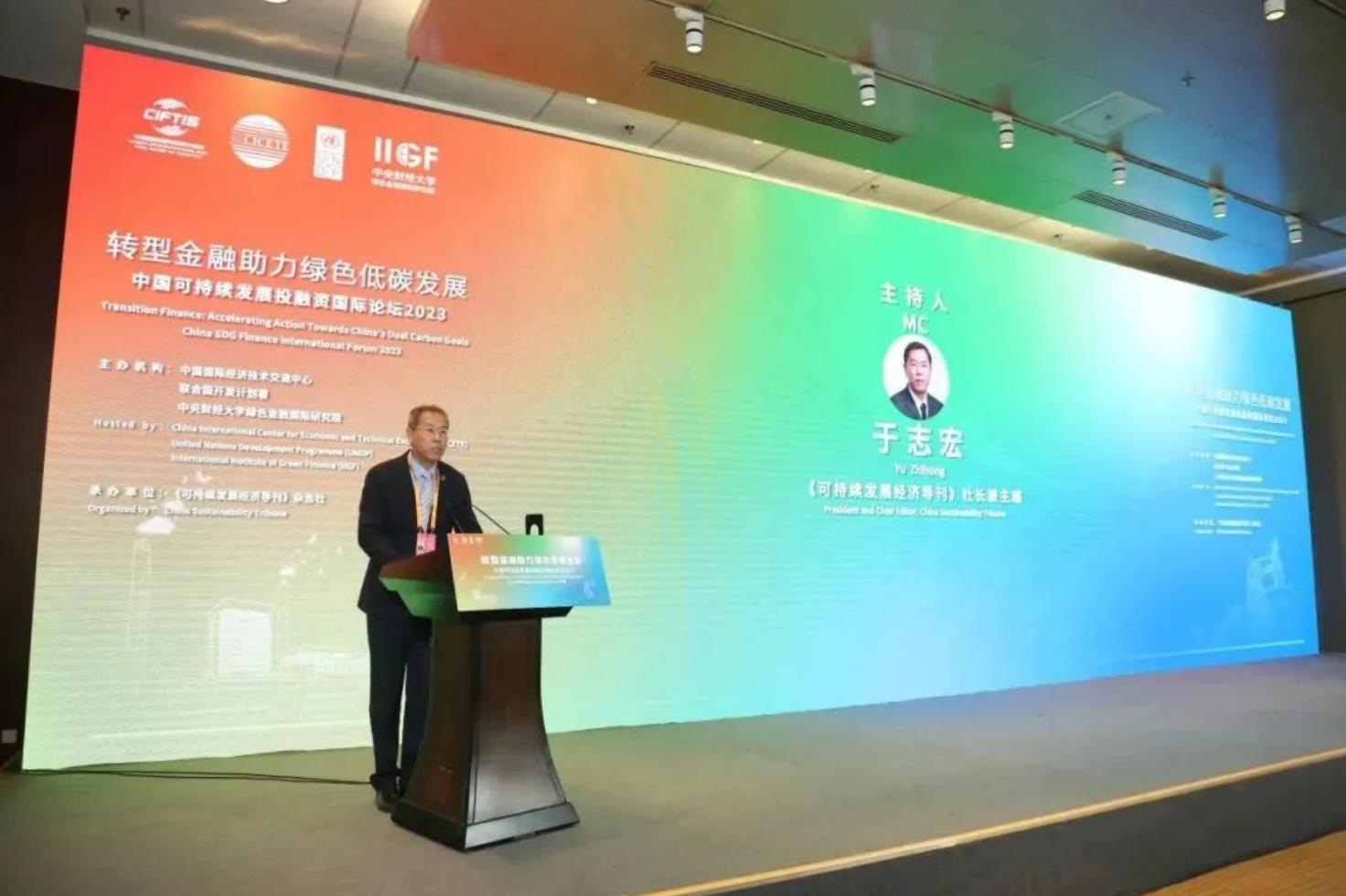
On September 6, 2023, “Transition Finance: Accelerating action towards China’s Dual Carbon Goals-China SDG Finance International Forum 2023” was successfully held at the China National Convention Center. The event was co-hosted by the China International Center for Economic and Technical Exchanges (CICETE), the United Nations Development Programme (UNDP), and the International Institute of Green Finance (IIGF) at the Central University of Finance and Economics (CUFE), with theChina Sustainability Tribune serving as the organizer. Stakeholders from public and private sectors both domestically and internationally participated in the forum through online and offline methods. Together, they explored the latest developments and future trends of transition finance both at home and abroad. The discussions aimed to further implement the goals of the Paris Agreement and the United Nations 2030 Agenda for Sustainable Development, and to explore new directions and share innovative ideas for expanding the growth space of SDG finance.
Trends and Prospects
Financial Support for Green and Low-Carbon Transition
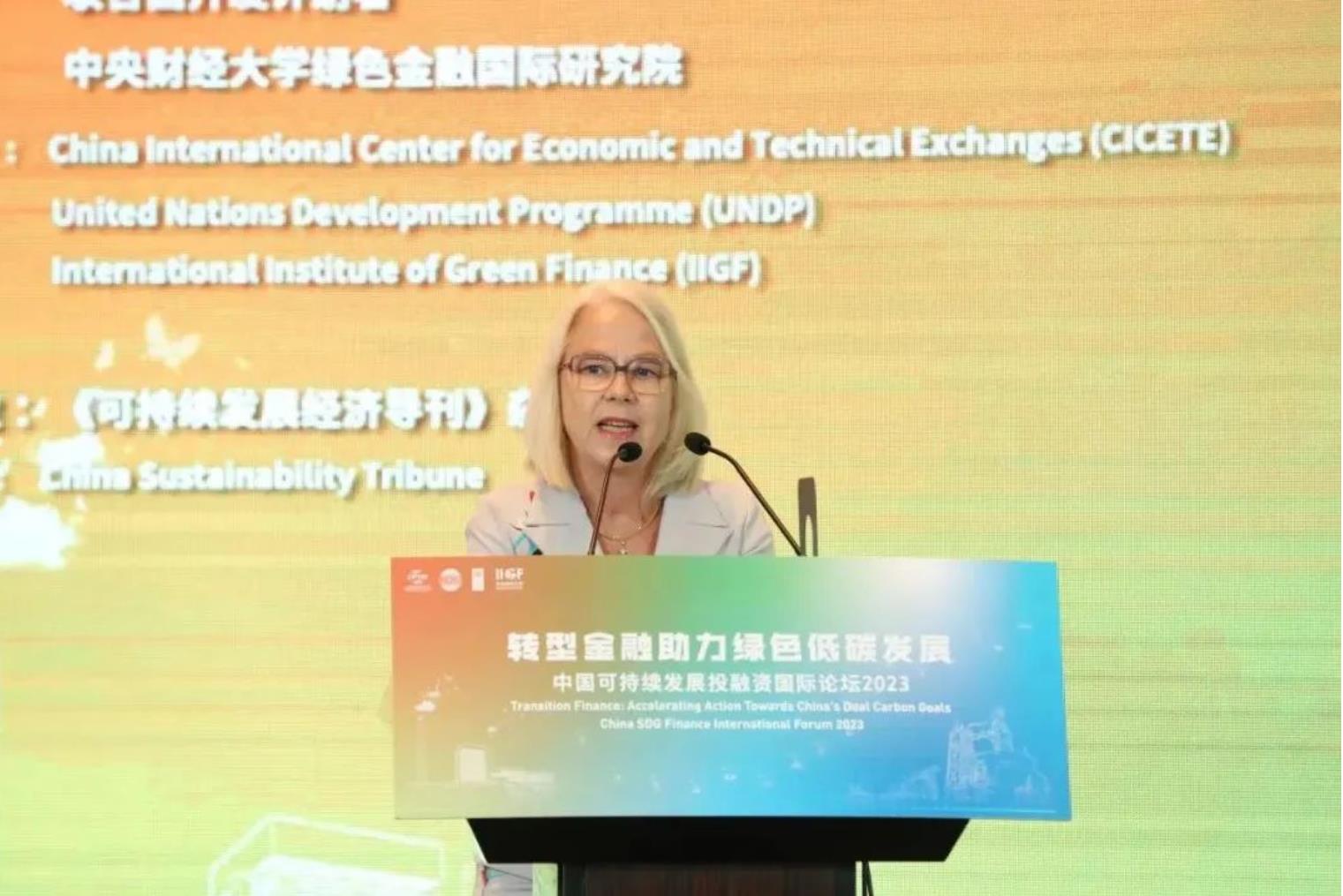
Beate Trankmann, UNDP Resident Representative in China, shared in her opening remarks that China has taken some important steps to see lasting transformation in the long-run. Since 2016, the country has established a comprehensive policy framework to green its financial system. However, further progress is needed to enable the low carbon transition of both China and the world at the scale needed. As highlighted in the 2022 G20 Sustainable Finance Report, we need finance to not only drive “pure green” activities, but also to support the transformation of hard-to-abate sectors such as energy, industry, and chemicals.
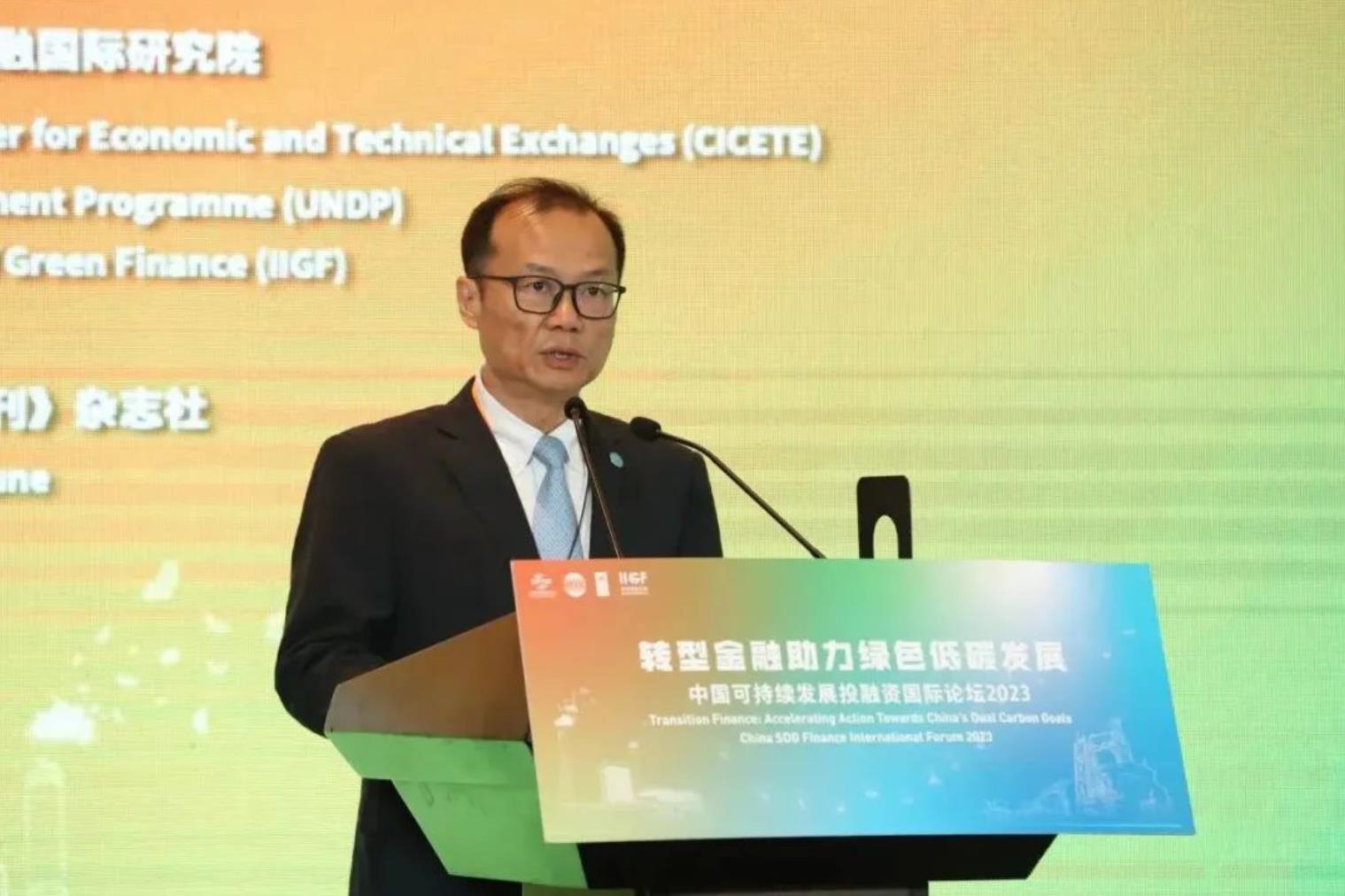
Zhang Yi, Deputy Director, CICETE, said he looked forward to continuing and deepening the China-UNDP SDG finance partnership. First, we should strengthen cooperation with policymaking and regulatory agencies to improve laws, policies and regulatory frameworks conducive to SDG finance. Second, we need to support research in relevant areas and share outcomes on developing evaluation standards and assessment systems. Third, we will collaborate with local governments, industry associations and financial institutions to build effective mechanisms for cooperation between government, financial institutions and enterprises. We will demonstrate innovative SDG finance projects and implement related business. Fourth, we should continue to strengthen cooperation with international organizations like UNDP to draw from global development experience, engage in global governance of SDG finance, and contribute Chinese wisdom and solutions.
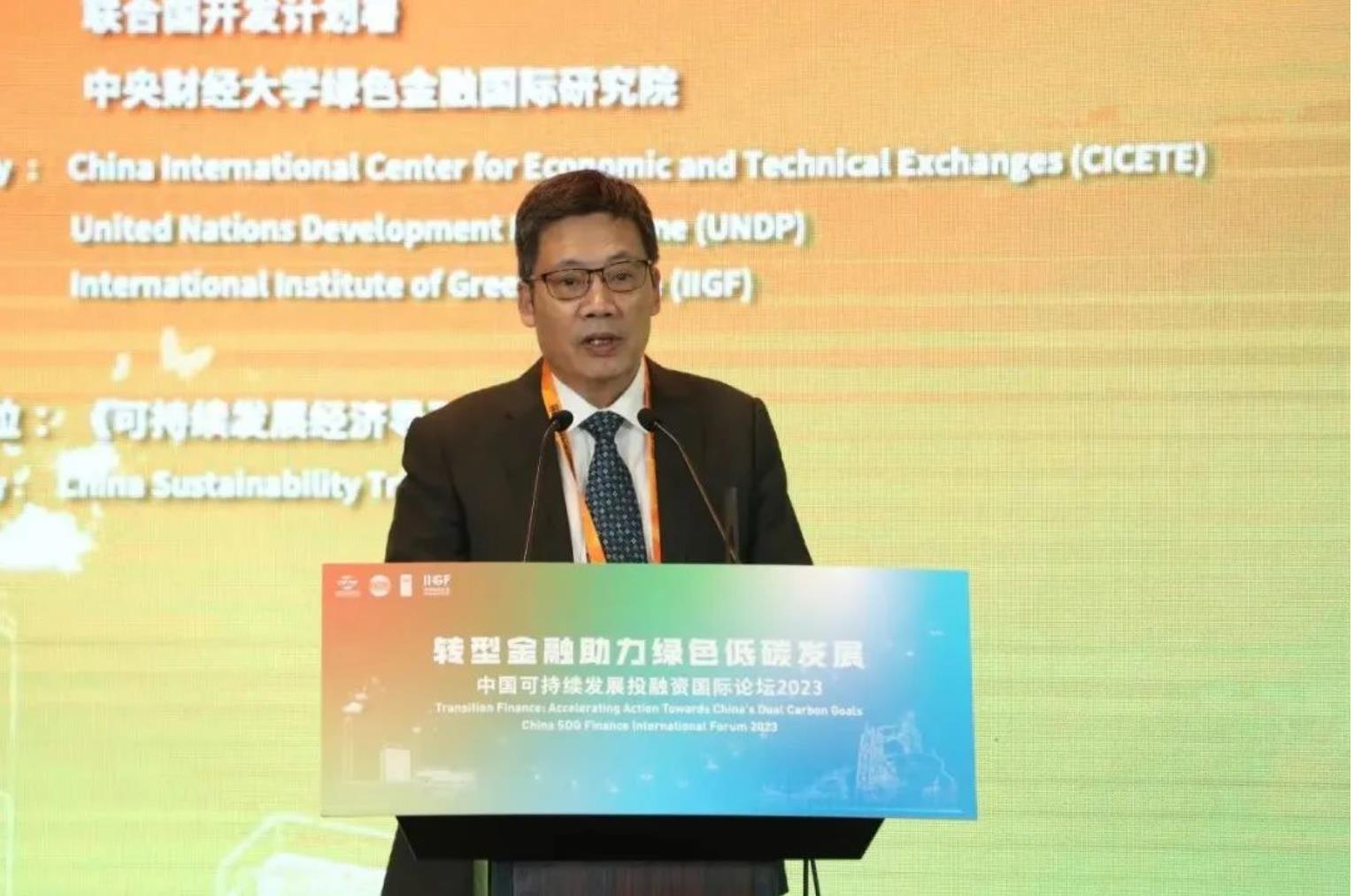
Shi Jianping, President of the International Institute of Green Finance at the Central University of Finance and Economics (IIGF), said green and SDG finance are becoming the mainstream in China and even the whole world. In recent years, different countries have recognized that addressing climate change and promoting sustainable development requires not just supporting "pure green" activities, but also transition finance to encourage financial capital to support their transition by setting feasible goals and pathways of emissions reduction for carbon-intensive industries and enterprises. He proposed three recommendations to advance transition finance: First, we need to promote unified international standards and disclosure requirements for defining transition activities. Second, we should pay much attention to ensuring finance supports a just transition and incorporate this into the transition finance framework. Third, we will deepen international academic exchanges and cooperation and strengthen the talent pool of transition finance.
Exploration and Reflection
Transition Finance Facilitates Sustainable Development
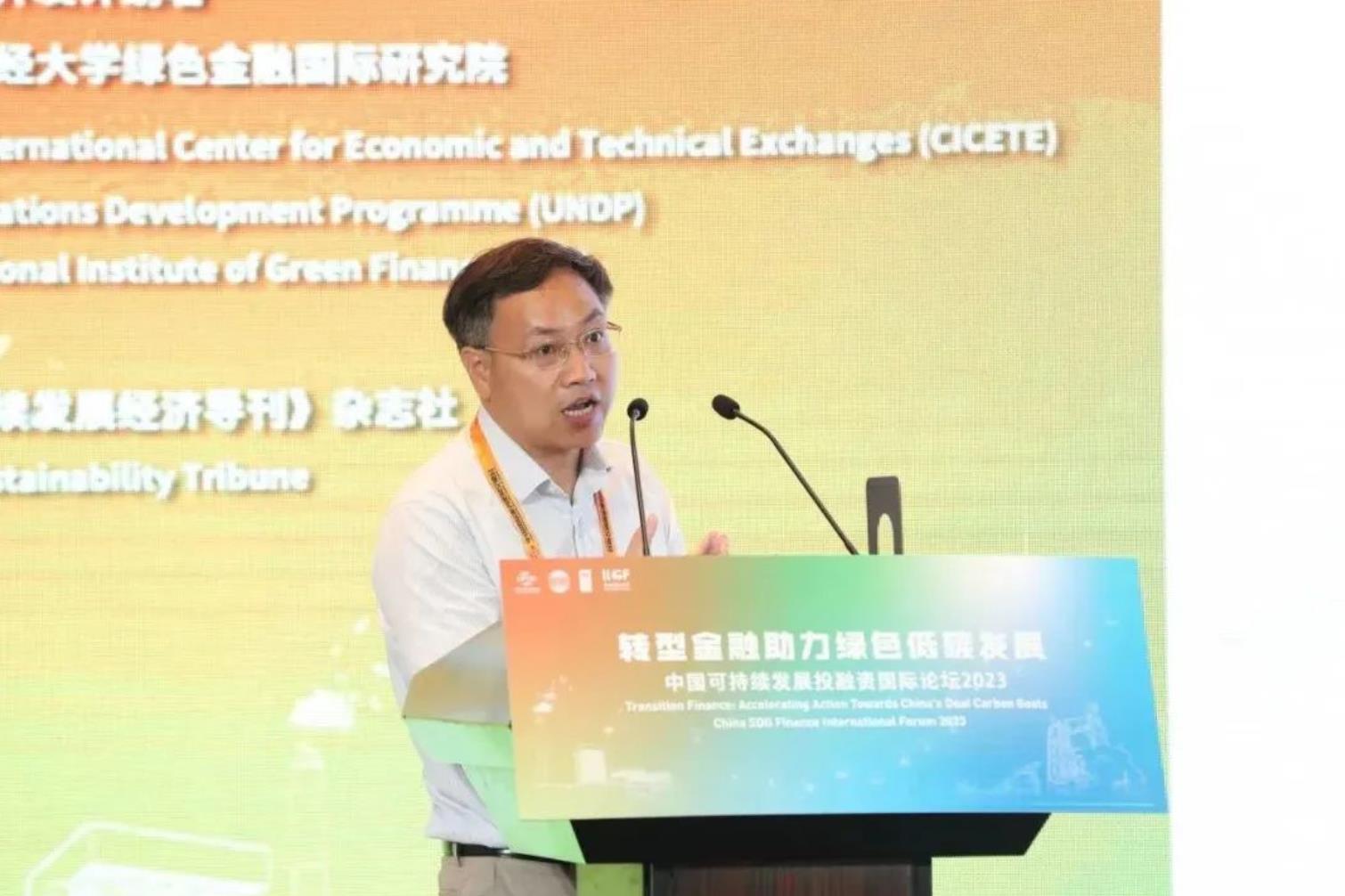
On the day of the forum, Chen Hao, Deputy Director-General, Research Bureau, People's Bank of China, delivered a keynote speech on topics relating to economic sustainability. He said the traditional resource-consuming model of economic growth has become difficult to sustain. Long-term economic growth depends on aggregate supply, including population, capital accumulation (physical capital, human capital, technological progress) and structural reforms. Although accumulating supply-side factors and implementing structural reforms can be slow, difficult and take a long time to yield results, promoting sustainable economic development from the supply side is an important issue worthy of attention and research.
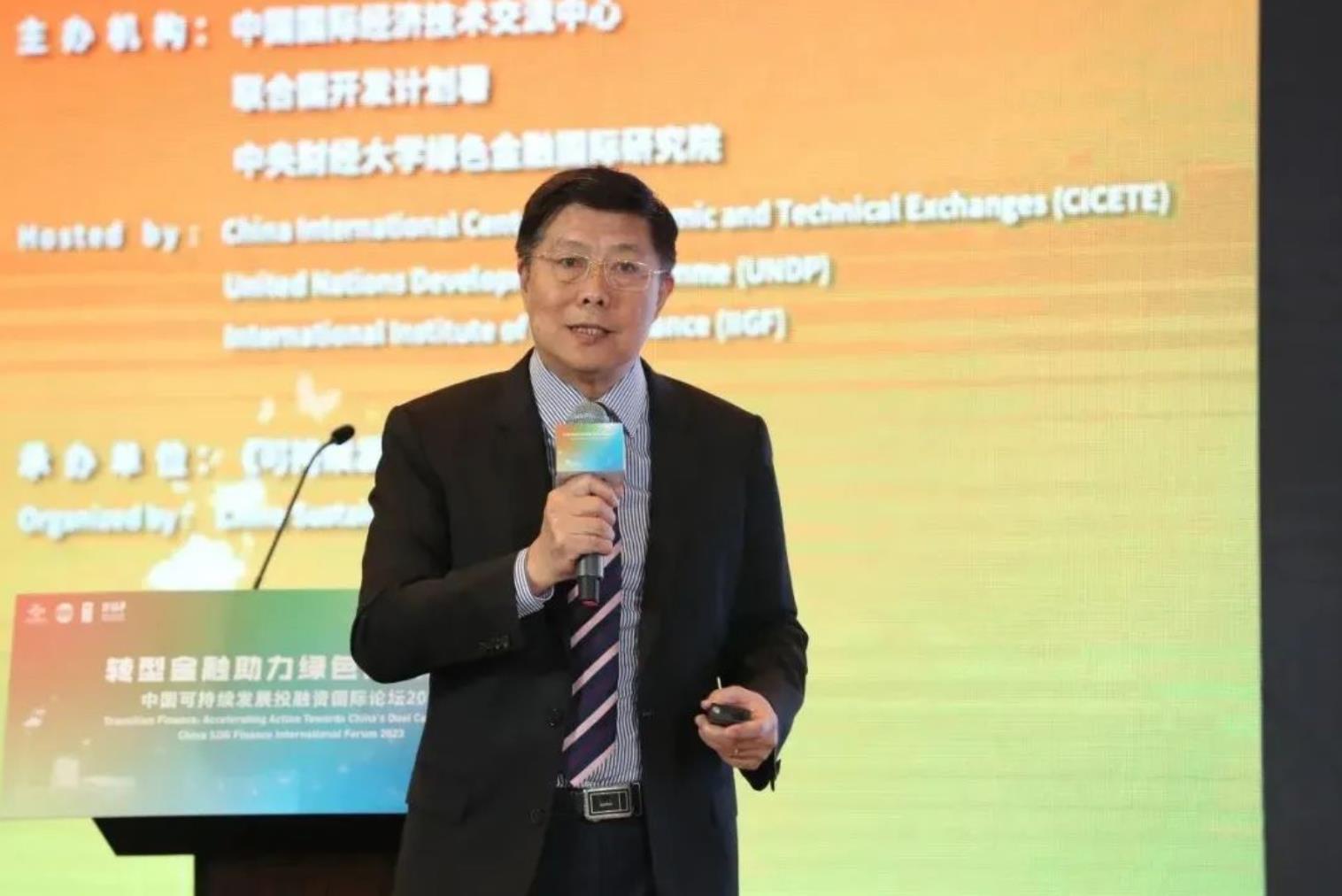
On the future development of transition finance, Tang Min, Counselor of State Council, Vice President of Youcheng Entrepreneurs Foundation for Poverty Alleviation, gave a keynote speech proposing five points: First, we ought to improve the top-level design and standards system for transition finance. Second, we should innovate diversified products and pioneering innovative instruments of transition finance in insurance, securities, funds, trusts, financial leasing, etc. Third, we should expand carbon trading markets. Through quota auctions, carbon taxes and others, carbon sink prices will be significantly increased. Fourth, we will refine the risk management mechanism for transition finance. Fifth, priority will be given to cultivating transition finance talents.
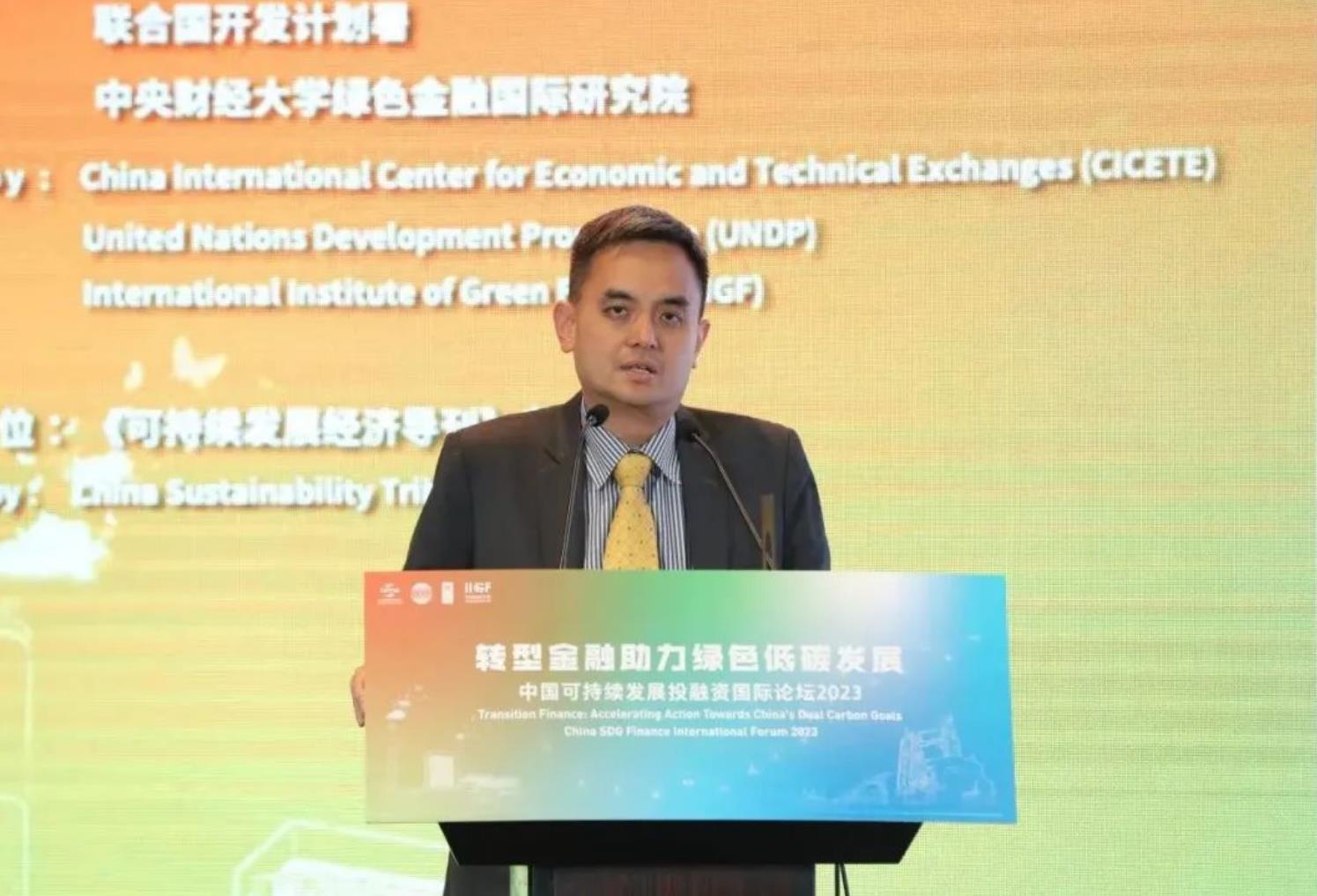
Ping Yean Cheah, Senior Partnerships Officer, Asian Infrastructure Investment Bank (AIIB), introduced principles followed and practical cases of multilateral development banks in promoting a just transition. He also shared considerations for AIIB's climate finance activities. They are as follows: meeting diverse needs of low- and middle-income members; favorable financing; investors' growing interest in climate financing; more structured and systematic partnerships; maximizing co-benefits for mitigation, adaptation and biodiversity/nature; and combining climate issues with development and economic issues in infrastructure financing.
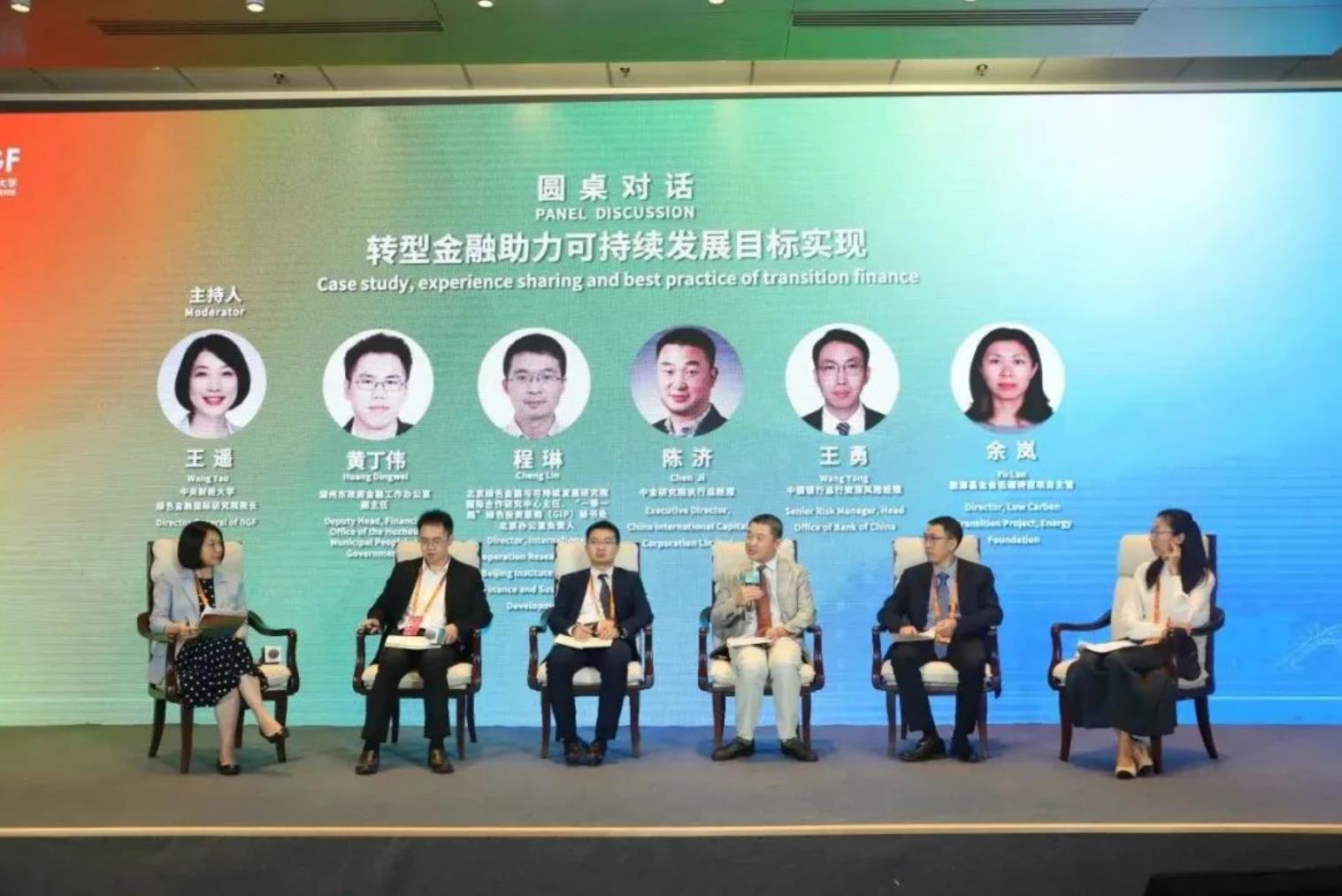
The panel discussion was moderated by Wang Yao, Director General of IIGF, and featured Huang Dingwei, Deputy Head, Financial Office of the Huzhou Municipal People's Government; Cheng Lin, Director, international Cooperation Research Center and Beijing Institute of Green Finance and Sustainable Development; Chen Ji,Executive Director, China International Capital Corporation Limited; Wang Yong, Senior Risk Manager, Head Office of Bank of China; and Yu Lan, Director, Low Carbon Transition Project, Energy Foundation. They discussed the current situation and practical exploration of domestic and international transition finance development, challenges, breakthroughs, and opportunities and challenges for transition finance to facilitate corporate low-carbon transition. Participants agreed that promoting financial support for green and low-carbon transition is critical for achieving goals of carbon peaking and carbon neutrality. More transition tools and products should be developed, incentive mechanisms and supporting measures further improved so that we can better leverage transition finance to support industrial green transformation.
Achievements and Improvements
Promoting Better Development of Transition Finance
As an important outcome of this forum, the Global Green Finance Development Index and Country Rankings and the Research on Transition Finance Supporting Local Transition Development - Cases of Inner Mongolia and Suzhou were released with great fanfare during the forum. They will provide effective references and guidance for finance to facilitate green and low-carbon transition.
Regarding transition finance supporting local transition development, the International Institute of Green Finance at the Central University of Finance and Economics put forward some thoughts based on previous research:
First, we should consider local transition requirements from three aspects - practical needs, needs to break bottlenecks in local development, and directions of industrial transition development - to profoundly understand that green transition is an internal requirement for high-quality economic development.
Second, we can analyze local green transition from perspectives such as transition timetables, transition roadmaps, industrial differences, path differences to form a transition analysis more aligned with development needs, thus constituting important directions and guidance for transition finance to support local transition.
Third, we need to take into account characteristics of finance itself and incorporate financial security, liquidity, profitability and other objective factors into the analytical framework.
For example, considerations of investment return for green transition, differences in financing for leading enterprises and SMEs in industries, foundational development of green finance and transition finance, complex and diverse financial risks, etc.
Fourth, based on the above comprehensive considerations, we should identify important paths for transition finance to support local transition. Overall, important contents include standards systems, policy systems for collaborative production and finance, market innovations focusing on transition benefits and cost savings, risk management. More importantly, incorporating the aforementioned regional and financial characteristics as well as other factors into the overall direction of deepening transition finance will better promote local transition development.
The forum also released the Global Green Finance Development Index and Country Rankings by the International Institute of Green Finance at CUFE. The top ten countries by overall score are the UK, France, China, Germany, Sweden, Japan, Canada, Denmark, the Netherlands and Italy, followed by Singapore, the US, Norway, Austria, Spain. In general, top-ranking countries are mainly developed economies, reflecting that countries with more developed economic conditions and financial markets have more prominent green finance development. It is worth noting that China is the only developing country among top ten. Portugal ranks at the median, with developed economies accounting for 77.78% of countries above the median, demonstrating the more pronounced role of economic and financial foundations in promoting green finance development. Among developing countries, China's green finance development is outstanding, ranking 17 places ahead of Mexico in second place. Countries ranked relatively low are mainly concentrated in Africa, the Middle East and Central Asia.
(This event was live streamed by National Business Daily, CaiLian Press's Whale Media platform, and the Institute of Political and Economic Studies.)









 Back
to top
Back
to top